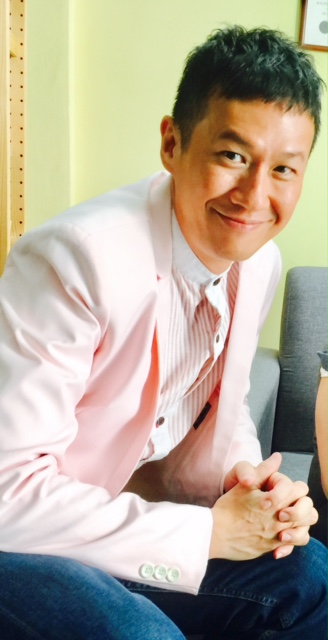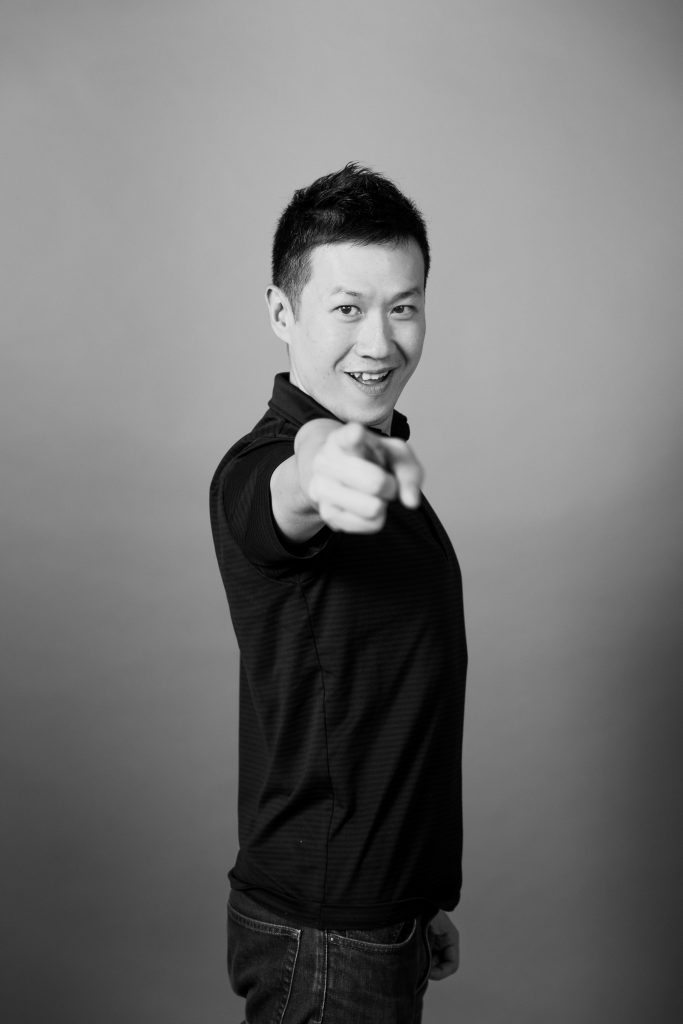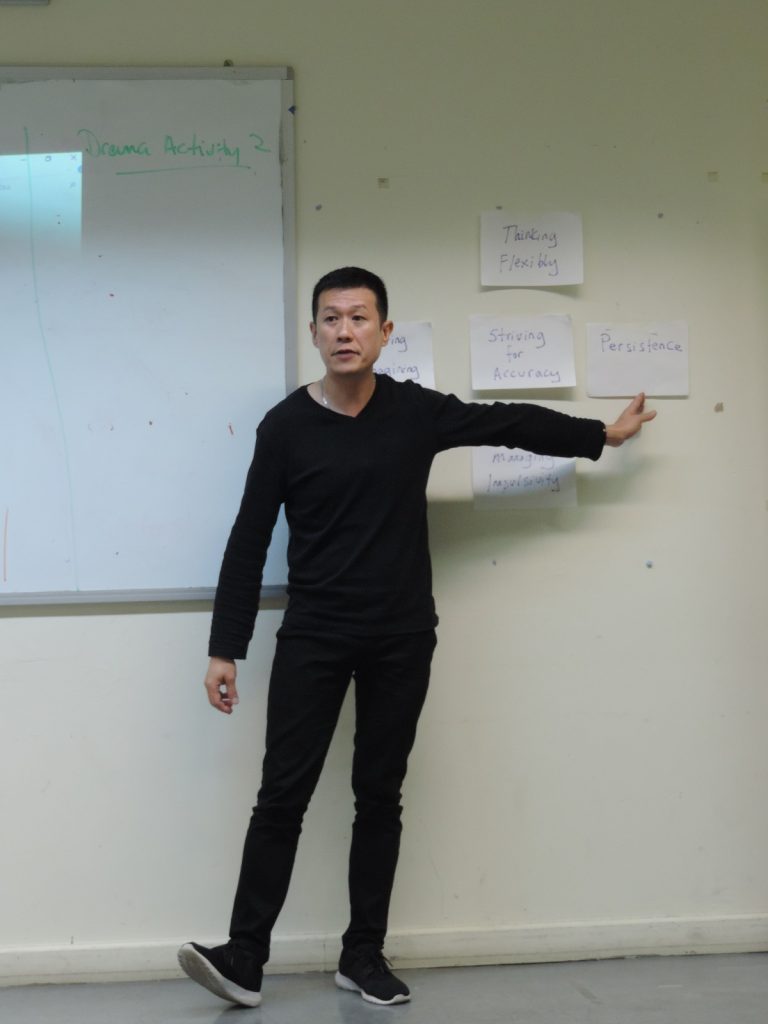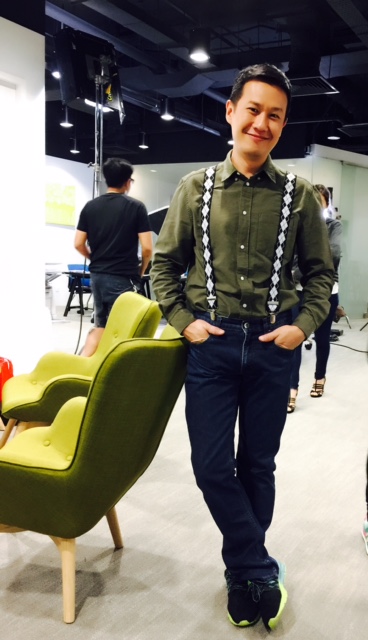SDEA Spotlight: Danny Jow
by SDEA

Danny Jow was part of the pioneer batch of students who completed the diploma training in drama at LASALLE College of the Arts. He then proceeded to pursue his BA (with distinction) in drama education with Queensland University of Technology (QUT) and has been a drama practitioner since 2000.
Danny devises various drama training syllabi, tailored specifically to the learning needs of different age groups. He is actively teaching drama (in Primary, Secondary, ITE and Special Needs Schools), trains and directs students in various genres of productions, from Plays to Musicals and inter-disciplinary arts projects. He has also conducted applied theatre projects and worked with Ministry of Culture, Community and Youth, Singapore Children’s Society and Singapore Prison Service in using drama to develop, rehabilitate and empower its participants.
As an Actor, he has appeared in productions including The Crucible, The Blood Wedding, Undercover, Drunken Prawns, if We Dream Too Long and Don’t Kangcheong, Kiasu and Kiasi. He has also acted in various short films (Unbroken, Cashless, The Gang and The Fairy tales) and appeared in TV commercials including Lao Fo Ye Hair Care, Allswell drinks, Direct Asia Insurance and the most recent, Celebrating Fathers 2017 - Letters to My Son. Danny also holds a Specialist Diploma (high distinction) in Counselling Psychology. He is a member of the Singapore Drama Educators Association (SDEA).
Danny is also an active volunteer with volunteering group, The Achievers, spending valuable time with the special friends in The Institute of Mental Health during the weekends. He has been awarded Volunteer Of The Month twice in 2016 and 2017.
**

- What are you working on at the moment?**
I am currently:
- Conducting drama programmes (in curriculum and enrichment) in mainstream schools and special needs schools
- Directing productions for schools
- Conducting corporate training through drama
- Conducting public acting classes for children and adults
2. What’s the direction of your work? Has it changed over the years?
In the last 3 years, I have begun to work with participants with special needs (Autism and mixed disabilities) through the power of drama after my completion of training in ‘Working and Facilitating the Learning of Children with Special Needs in the Arts’ in 2014.
My style of directing has also changed over the last few years. I am incorporating more imagery and physical staging into my ensemble work.
3. What is a dream project that you hope to do?
I would love to start a youth performing arts club to nurture the next generation of young actors and theatre makers from diverse and humble backgrounds, providing them with the knowledge and training in both performing (act, sing and dance) and production to unleash their hidden potential and hone their talent while developing their sense of self through theatre. I hope to travel overseas to work with theatre companies/groups and conduct drama programmes with a purpose for the locals.
**

- How did you start out doing what you do?**
After graduating from LASALLE in 1994, acting jobs were scarce. I was also undecided on what I should do. So, I joined TCS (Television Corporation of Singapore) when there was an opening for various production roles with the newly set-up English Drama Unit. I decided it was a good opportunity for me to apply my drama skills and knowledge while experiencing TV productions and picking up additional skills.
Over the last 5 years with the station, I have held various roles involving floor manager, production assistant, facilities manager, assistant director, producer and casting director. During my 4th year with the station in 1998, I was invited to direct an outdoor production for National Day with St Andrew Secondary School. The production was massive involving the drama club and various CCA performing and uniform groups. I worked very closely with the drama club boys providing them with acting training and directing them.
Throughout the process, I discovered and was convinced that the power of theatre is more than just about performing on stage. I witnessed a beautiful transformation of the boys who have not only developed the skills to act and perform, their self-growth has also improved tremendously in terms of their cognitive-social-emotional-behavioural development. That project begun to change my life because I have found my calling - to teach. But I knew my Diploma was not sufficient to equip me with the necessary skills and knowledge to be a drama educator.
So, I applied to study drama education in Queensland University of Technology. In 1999, during the financial crisis, when everyone was holding on dearly to their jobs, I went against many friends’ advice and I resigned. With my mother’s blessing, I packed and left for Brisbane to start my new journey as a matured student at the age of 28.
Upon graduation, I chose to return to Singapore because I wanted to contribute to the development of its drama education after having found out that schools were beginning to be receptive to the idea of incorporating drama training into its holistic education. Since then, I have never looked back. It has been a great 18 years.
5. How do you keep your work fresh?
Constantly upgrading my skills and deepening my knowledge by attending training workshops. Watching many productions and getting inspired by the amazing works on stage by my peers. Be involved as an actor for both stage and screen.
**

- What do you think makes a perfect drama educator?**
There is no perfect drama educator. We must have the right mindset and the attitude to constantly learn, unlearn and relearn regardless of years of experiences. To begin with, one must enjoy teaching and imparting drama skills and theatre knowledge and work towards transforming lives throughout the process. When we step into a class, the focus is on sharing, impacting, developing and inspiring the participants with our experiences, skills and passion. We empower them to explore, experience, take creative risks and to create in a safe, disciplined, fun setting and providing them with constructive feedback, encouragement and affirmation during the process. It is not about how good we are or taking the opportunity to boast about our achievements in the class. The stage is set for them to shine. Not for us.
7. Why is drama important? Why should it be taught in schools?
Because drama is an effective and powerful tool to develop both SKILLS (artistic) and SELF (character values, life skills, social-emotional learning and 21st century competencies). The process appeals to all types of learners because it engages the participants in active learning which incorporates VAK learning style: visual, auditory and kinaesthetic.
8. What is your most memorable moment in the classroom/on stage?
There are many memorable moments for me over the last 18 years of teaching and working with children, youths and adults. Every class is always challenging yet fulfilling, amazing and magical.
If I were to pick, I would choose a moment during my first year of teaching drama in a Secondary School. I agreed to work with 40 youths in a classroom for a drama in-curriculum programme. (Since then, I have always advised it should be 1:20 ratio for effective learning to take place). It was an NT class. I struggled because of my little teaching experience and lacking of knowledge and skills in classroom management.
There was a session where I finally broke down in front of the students and asked them why they were being difficult. It was also a turning point for us. That session turned out to be the most intimate and an emotional moment for us because we started to share about ourselves - our fears, our struggles, our feelings and perspectives. We opened up to each other and we interacted and felt connected as humans at a deeper level after that session.
Today, it has also become one of my strategies to engage my students and to connect with them. Well, isn’t that what drama is about?
9. Share a drama activity that you love to do. I love doing tableau work with participants of any age. It is a good start for any drama workshop. And adding layers to the activity to encourage and challenge them to imagine, explore, experience and to create. 10. What do you hope to see in Singapore's drama/theatre landscape in future?
I hope that there is still a demand for drama educators to partner with mainstream schools and special needs schools to contribute to its holistic curriculum through drama/theatre education. The drama education industry will continue to develop with more generations of quality and honest educators to come. SDEA will continue to represent the drama educators community with improved policies and strengthened working processes.
11. In one word, sum up your drama education journey.
Blessing.



